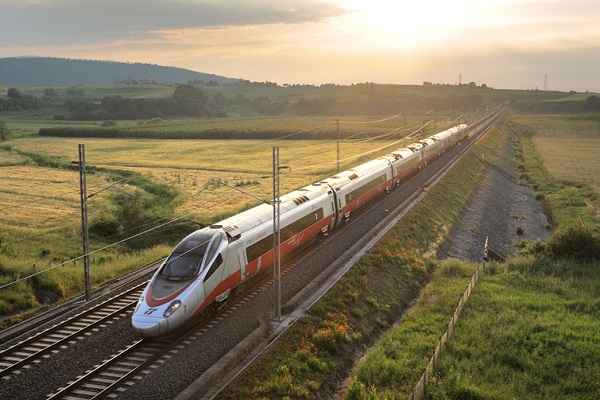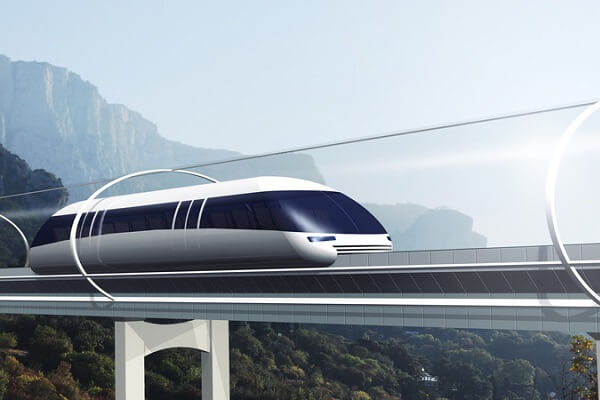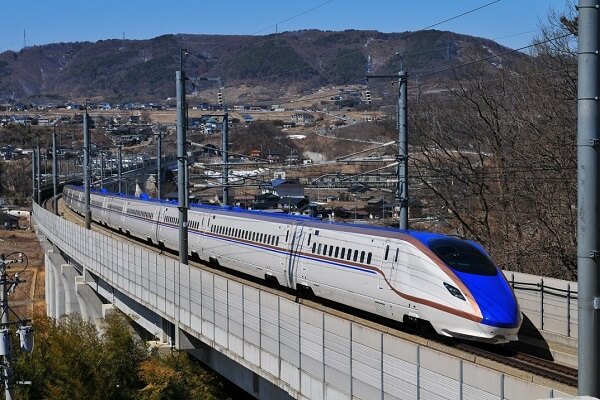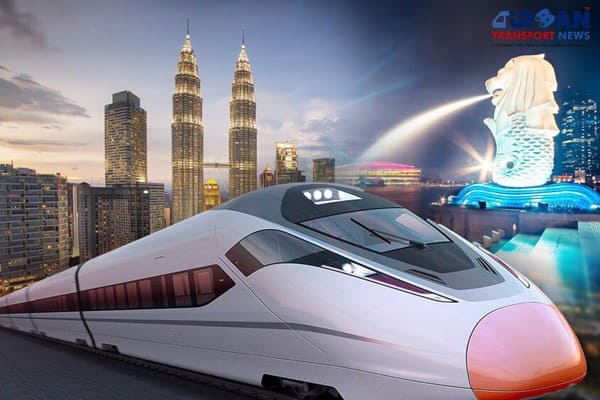SATEBA acquires Rail Business of De Bonte Group in Belgium
 Regent to launch High-Speed Seagliders to transform coastal transportation in UAE
Regent to launch High-Speed Seagliders to transform coastal transportation in UAE California commences construction on $12bn Los Angeles - Vegas High Speed Rail Project
California commences construction on $12bn Los Angeles - Vegas High Speed Rail Project Kochi Water Metro floats tender to procure 15 more electric-hybrid ferries
Kochi Water Metro floats tender to procure 15 more electric-hybrid ferries Siemens Mobility-Hassan Allam Construction JV Sign Contract for UAE – Oman Railway Link
Siemens Mobility-Hassan Allam Construction JV Sign Contract for UAE – Oman Railway Link What is better public transport option for Bengaluru - RRTS or Metro Expansion?
What is better public transport option for Bengaluru - RRTS or Metro Expansion? Behind Closed Doors: Corruption Uncovered in Delhi Metro's Top Management
Behind Closed Doors: Corruption Uncovered in Delhi Metro's Top Management IndiGo to launch Urban Electric Air Taxis between Delhi to Gurugram
IndiGo to launch Urban Electric Air Taxis between Delhi to Gurugram Swisspod secures Strategic Investment to advance the Hyperloop Transportation
Swisspod secures Strategic Investment to advance the Hyperloop Transportation Siemens Mobility revolutionizes Copenhagen's S-bane Network with Driverless Technology
Siemens Mobility revolutionizes Copenhagen's S-bane Network with Driverless Technology
Indonesia starts bullet train trial runs for Jakarta-Bandung high-speed rail line

Jakarta, Indonesia (Urban Transport News): The first trail runs on Jakarta-Bandung high-speed rail line has been comemnced on 22nd June 2023. During Jakarta-Bandung high-speed railway's joint commissioning and testing on Thursday, the train's running speed reached 350 kilometers per hour (km/h) for the first time, meeting the test run requirements.
The incremental speed tests have been conducted since the start of joint commissioning and testing on May 22. The comprehensive inspection train gradually increased its speed from 180 km/h to the design speed of 350 km/h, fully validating the functionality and performance of various systems of the railway, including track, power supply, overhead catenary system, communication, signaling, and early warning monitoring.
Since the end of February this year, personnel from China and Indonesia have closely collaborated in order to prepare for the official commencement of operation. The Chinese side has provided professional training to Indonesian students in high-speed rail operation positions, including train drivers, train mechanics, and operation control center dispatchers to provide talent and technical support for the high-quality opening of the railway.
The high-speed line, a landmark project under the China-proposed Belt and Road Initiative, connects Indonesia's capital Jakarta and another major city Bandung. Spanning 142.3 kilometers, the railway makes Indonesia the first Southeast Asian nation to have a high-speed railway.
It will cut the journey between Jakarta and Bandung from over three hours to around 40 minutes.
Jakarta-Bandung high-speed rail project: At a glance
The Jakarta-Bandung high-speed rail project is an ambitious transportation infrastructure initiative in Indonesia, aimed at improving connectivity and reducing travel time between the country's capital, Jakarta, and the city of Bandung in West Java. Here's an overview of the project:
The idea of a high-speed rail link between Jakarta and Bandung was first proposed in the 1990s, but it gained momentum in recent years due to the increasing need for efficient transportation options in the region. The project is part of Indonesia's broader efforts to enhance its infrastructure and stimulate economic growth.
The project is being developed through a public-private partnership model. The Indonesian government formed a consortium called PT Kereta Cepat Indonesia China (KCIC) in cooperation with Chinese investors, including the China Railway Corporation (CRC) and a consortium of Chinese construction and financing companies. KCIC oversees the construction, operation, and maintenance of the high-speed rail line.
The Jakarta-Bandung high-speed rail project involves the construction of a dedicated double-track railway line spanning approximately 142 kilometers (88 miles) between the two cities. The trains are designed to operate at speeds of up to 350 kilometers per hour (217 miles per hour), significantly reducing travel time compared to existing transportation options.
Benefits of the project
The high-speed rail project is expected to bring several benefits to the region and the country as a whole:
1. Reduced Travel Time: The journey between Jakarta and Bandung, which typically takes around three hours by road, is expected to be completed in approximately 40 minutes by high-speed rail, greatly improving connectivity between the two cities.
2. Economic Growth and Development: The improved transportation link is anticipated to stimulate economic growth in the region, attracting investments, boosting tourism, and facilitating the movement of goods and people.
3. Environmental Impact: The high-speed rail is expected to alleviate congestion on roads and highways, reducing carbon emissions and promoting a more sustainable mode of transportation.
4. Employment Opportunities: The construction and operation of the rail project create job opportunities for both skilled and unskilled workers, contributing to local employment.
Challenges and Controversies
The Jakarta-Bandung high-speed rail project has faced some challenges and controversies during its development:
1. Land Acquisition: The acquisition of land for the project has been a complex process, involving relocation and compensation for affected communities and businesses along the proposed rail corridor.
2. Financing and Cost Overruns: The project's financing structure and cost management have been subject to scrutiny, with concerns raised about the financial viability and potential cost overruns.
3. Technical and Operational Issues: High-speed rail projects require careful engineering and operational planning to ensure safety, efficiency, and long-term sustainability. Addressing technical and operational challenges is crucial for the successful implementation and maintenance of the rail line.
Construction of the Jakarta-Bandung high-speed rail project commenced in 2016, and significant progress has been made in the initial phases. The completion date has been revised several times, with the latest target set for 2023.
The Jakarta-Bandung high-speed rail project represents an ambitious endeavor to enhance transportation infrastructure in Indonesia. Once completed, it is expected to provide a fast, efficient, and sustainable mode of travel between Jakarta and Bandung, contributing to economic development and improved connectivity in the region.





